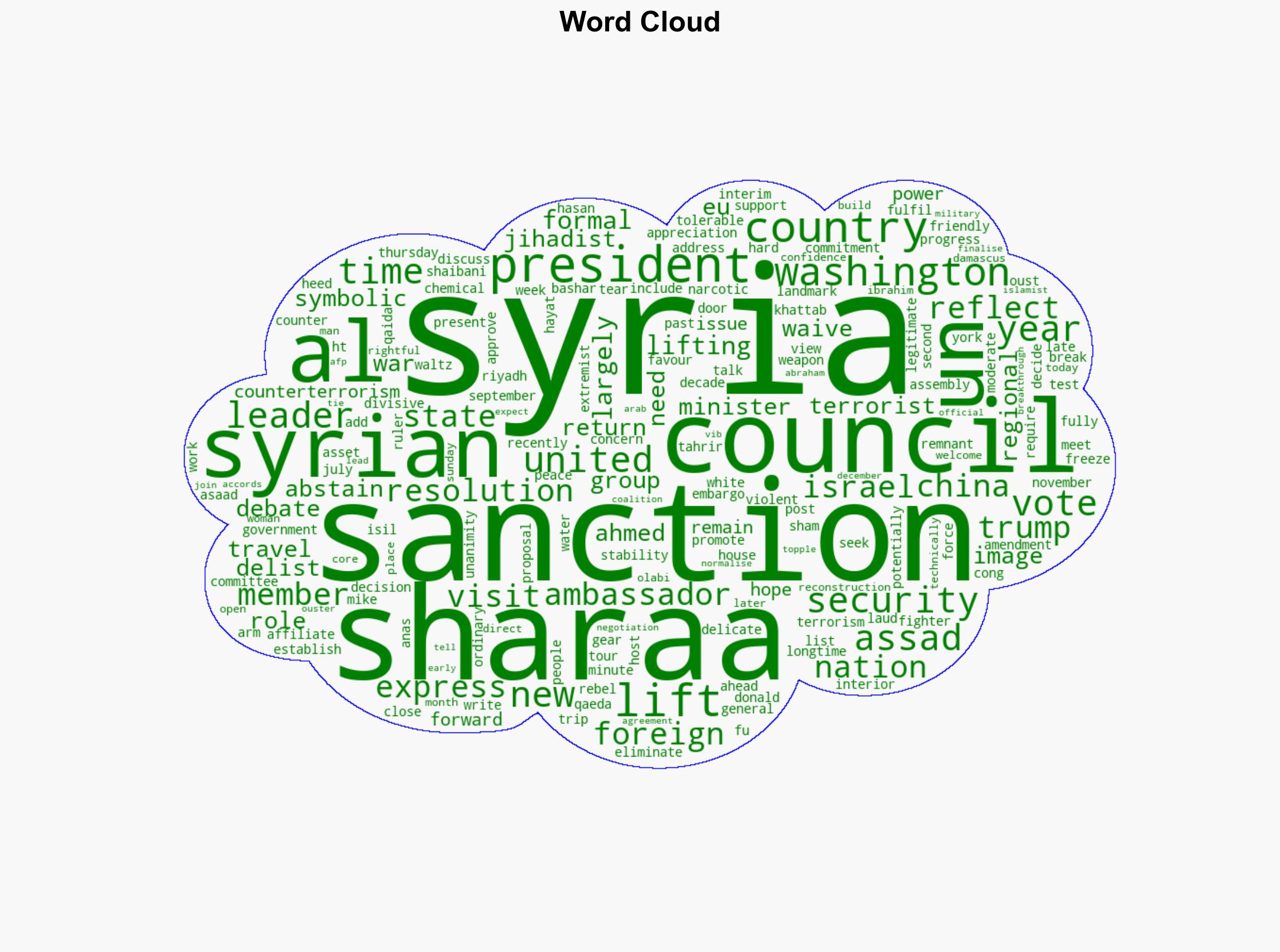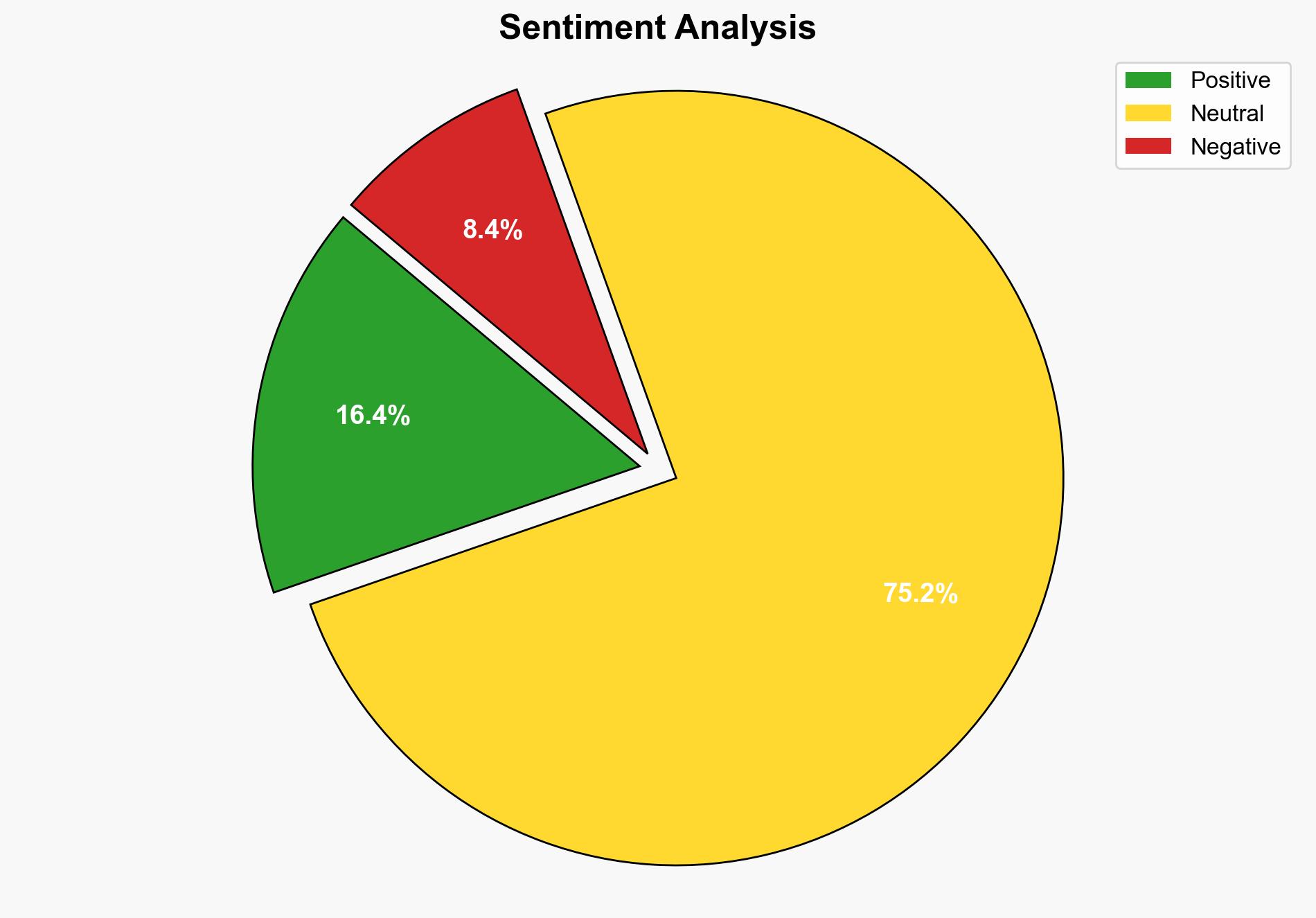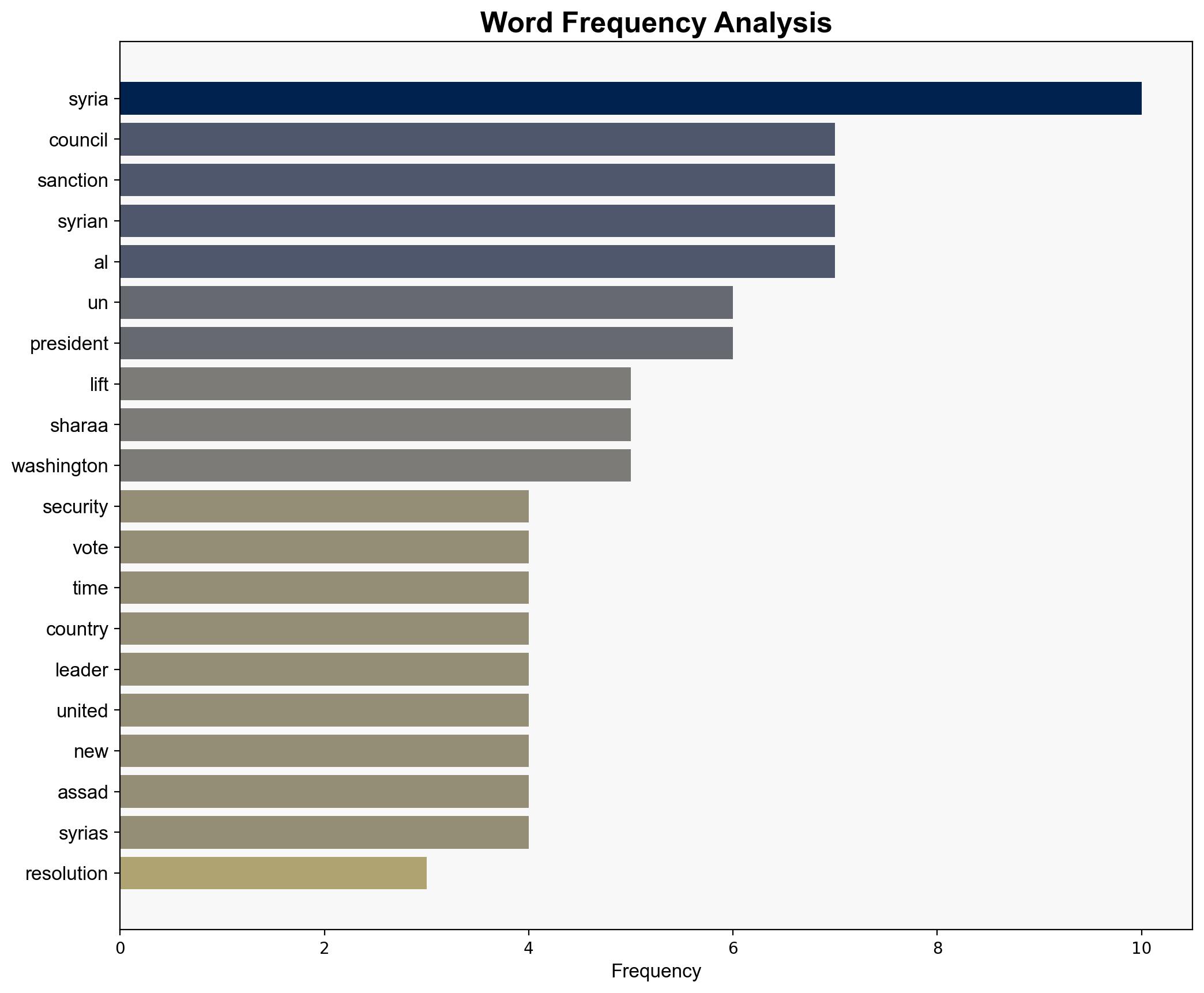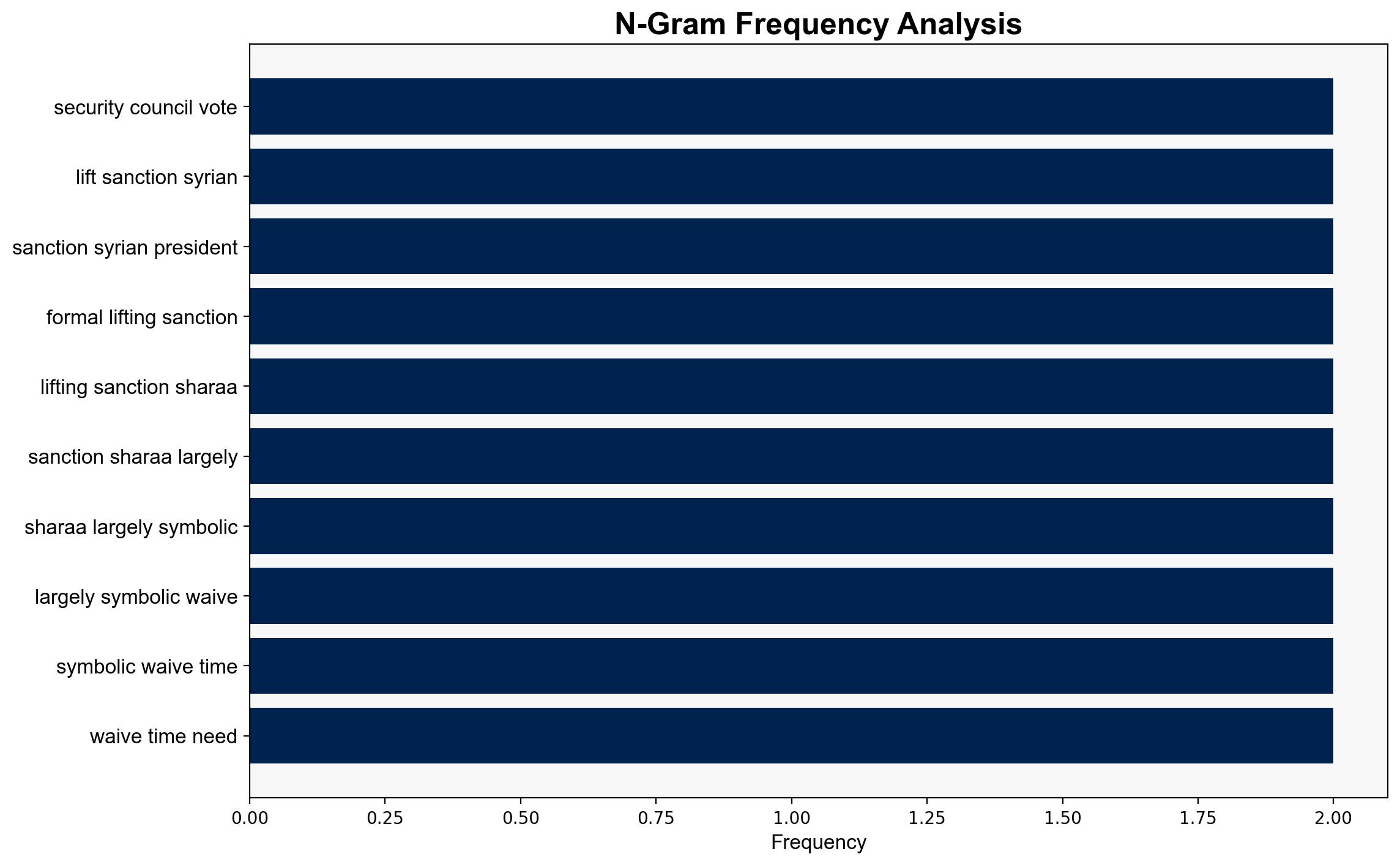UN Security Council votes to lift sanctions on Syrian president – EURACTIV
Published on: 2025-11-07
Intelligence Report: UN Security Council votes to lift sanctions on Syrian president – EURACTIV
1. BLUF (Bottom Line Up Front)
The UN Security Council’s decision to lift sanctions on Syrian President Ahmed al Sharaa is a strategic move with potential geopolitical implications. The most supported hypothesis suggests this is part of a broader effort to stabilize Syria and integrate it into regional peace processes. Confidence in this hypothesis is moderate due to the complexity of regional dynamics and potential hidden agendas. Recommended action includes monitoring subsequent diplomatic engagements and preparing for shifts in regional alliances.
2. Competing Hypotheses
1. **Hypothesis A**: The lifting of sanctions is primarily symbolic, aimed at facilitating diplomatic engagements and signaling a shift towards normalization with Syria. This aligns with efforts to stabilize the region and counter extremist threats.
2. **Hypothesis B**: The decision is part of a strategic maneuver by certain UN members to gain influence in Syria, potentially at the expense of broader international consensus on counter-terrorism and human rights issues.
Using ACH 2.0, Hypothesis A is better supported by the evidence, such as the alignment with recent diplomatic efforts and the symbolic nature of the sanctions lift. Hypothesis B, while plausible, lacks direct evidence of ulterior motives by specific UN members.
3. Key Assumptions and Red Flags
– **Assumptions**: The assumption that lifting sanctions will lead to positive diplomatic outcomes and regional stability. Another assumption is that all parties involved are acting in good faith towards peace.
– **Red Flags**: China’s abstention and expressed concerns about counter-terrorism suggest potential dissent within the UN. The rapid shift in Syria’s international standing could indicate underlying geopolitical strategies not fully transparent.
4. Implications and Strategic Risks
The lifting of sanctions could lead to increased diplomatic engagement with Syria, potentially altering regional power dynamics. However, there is a risk of backlash from groups opposed to normalization, which could destabilize efforts to counter extremist threats. Economic implications include potential reconstruction opportunities in Syria, but these are contingent on sustained peace and security.
5. Recommendations and Outlook
- Monitor diplomatic engagements and regional alliances for shifts in policy or strategy.
- Engage in dialogue with key stakeholders to ensure alignment on counter-terrorism and human rights objectives.
- Scenario Projections:
- Best: Successful integration of Syria into regional peace processes, leading to long-term stability.
- Worst: Escalation of regional tensions due to perceived favoritism or neglect of human rights issues.
- Most Likely: Gradual normalization with periodic setbacks due to internal and external pressures.
6. Key Individuals and Entities
– Ahmed al Sharaa
– Anas Hasan Khattab
– Asa’ad al Shaibani
– Mike Waltz
– Fu Cong
– Ibrahim Olabi
7. Thematic Tags
national security threats, counter-terrorism, regional focus, geopolitical strategy





